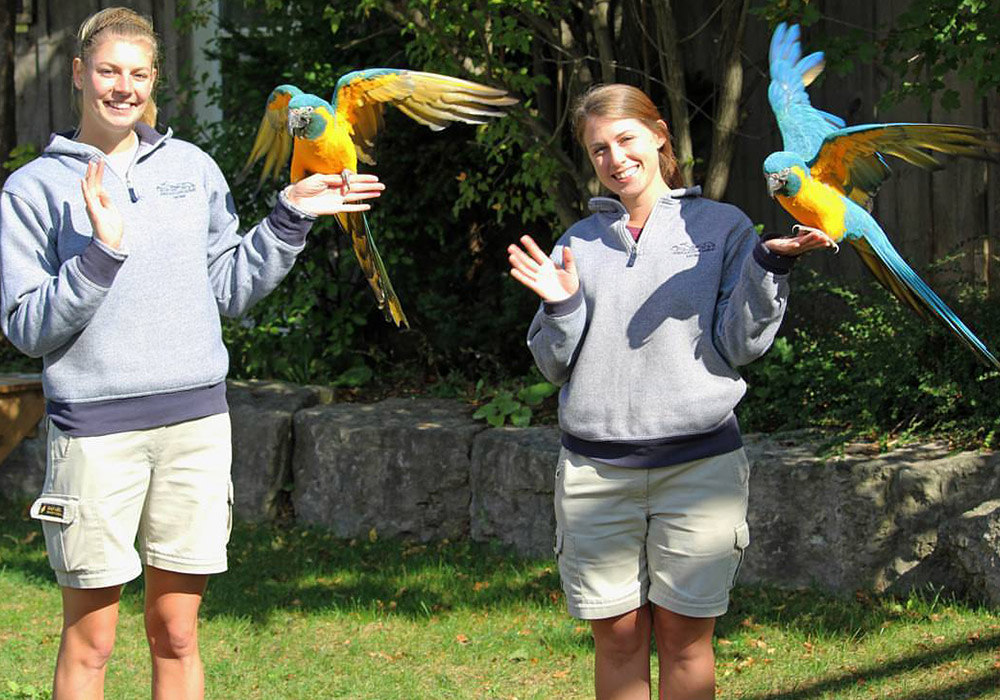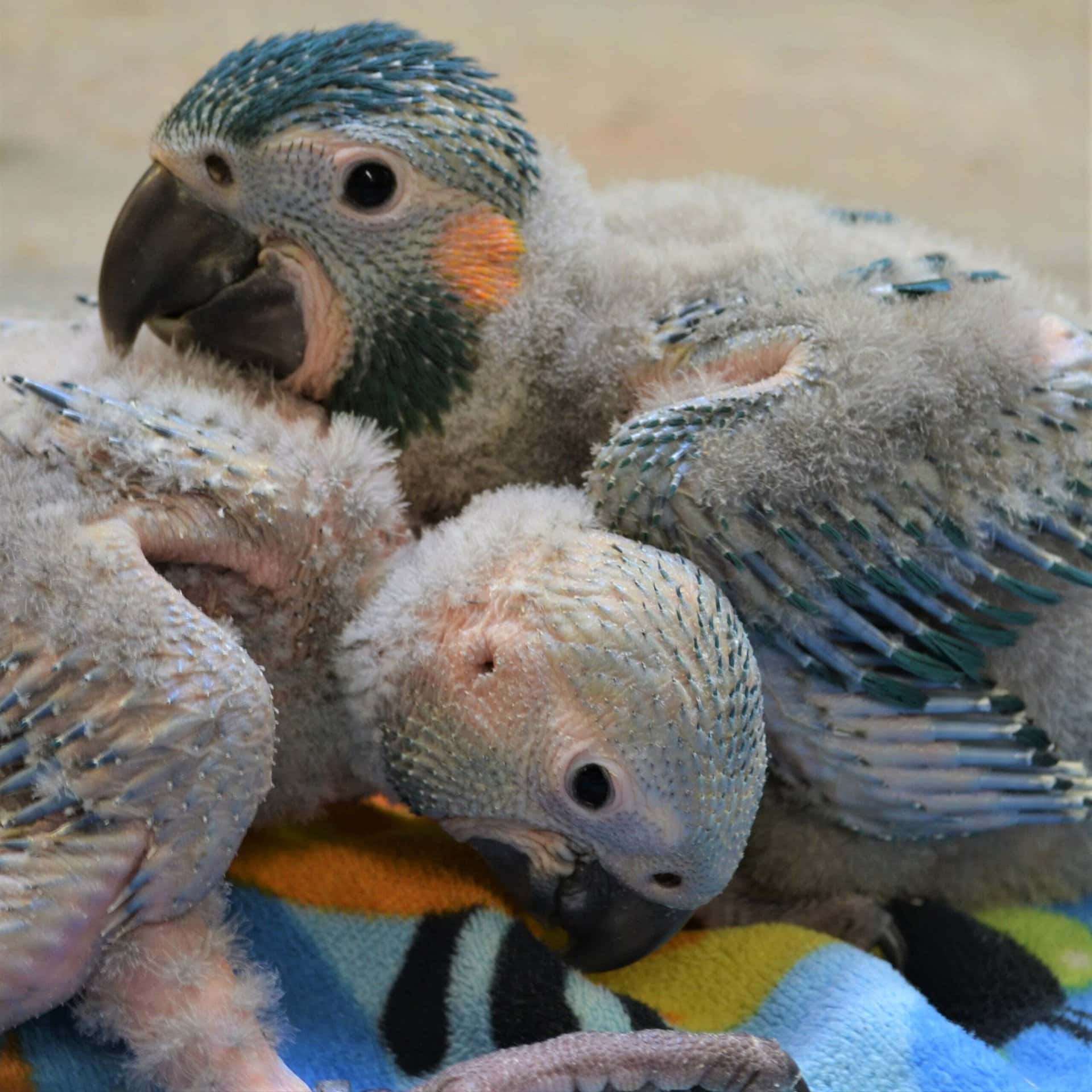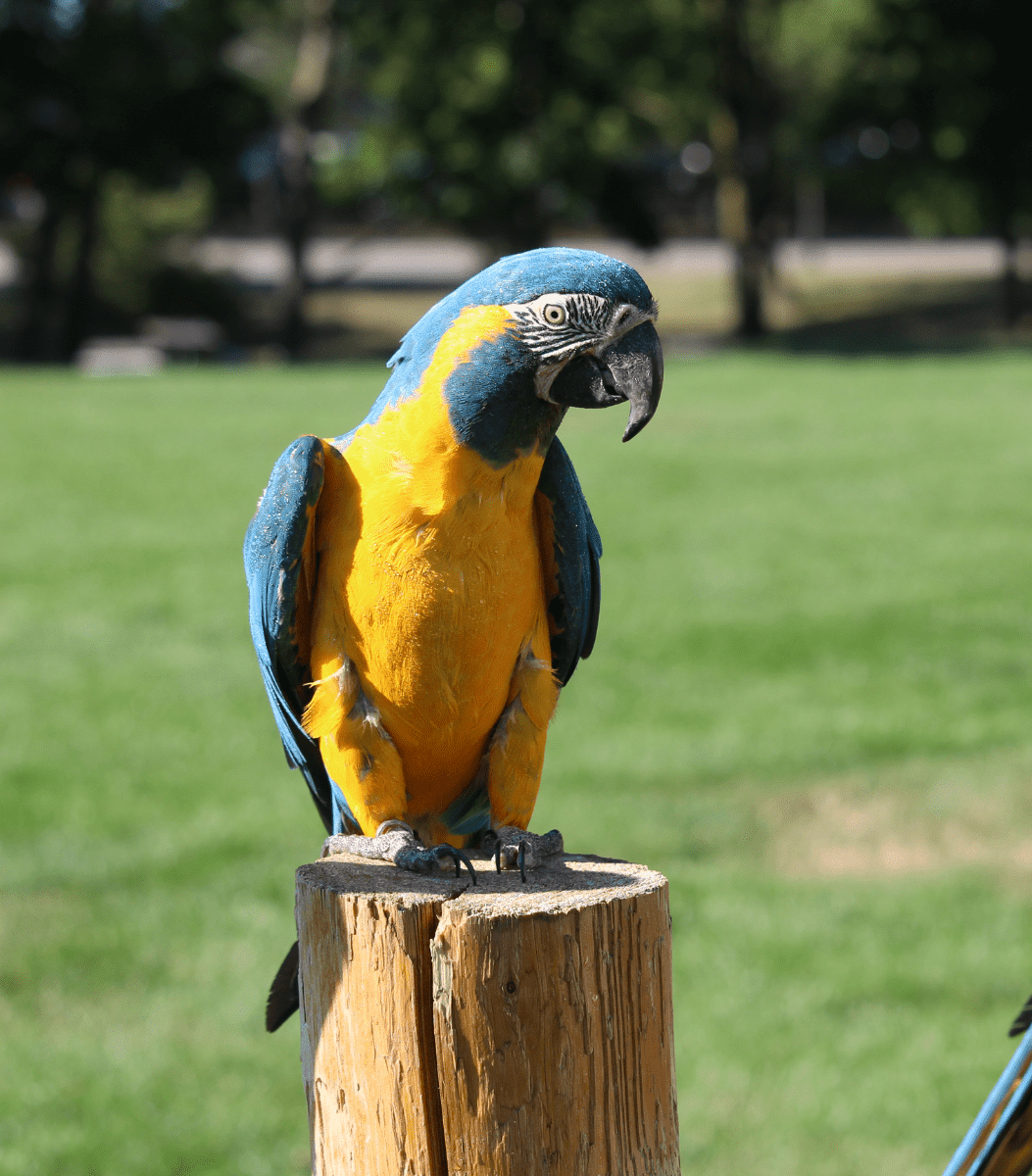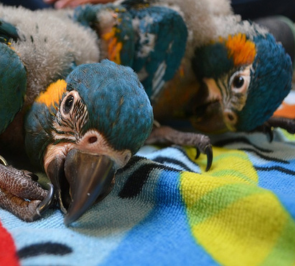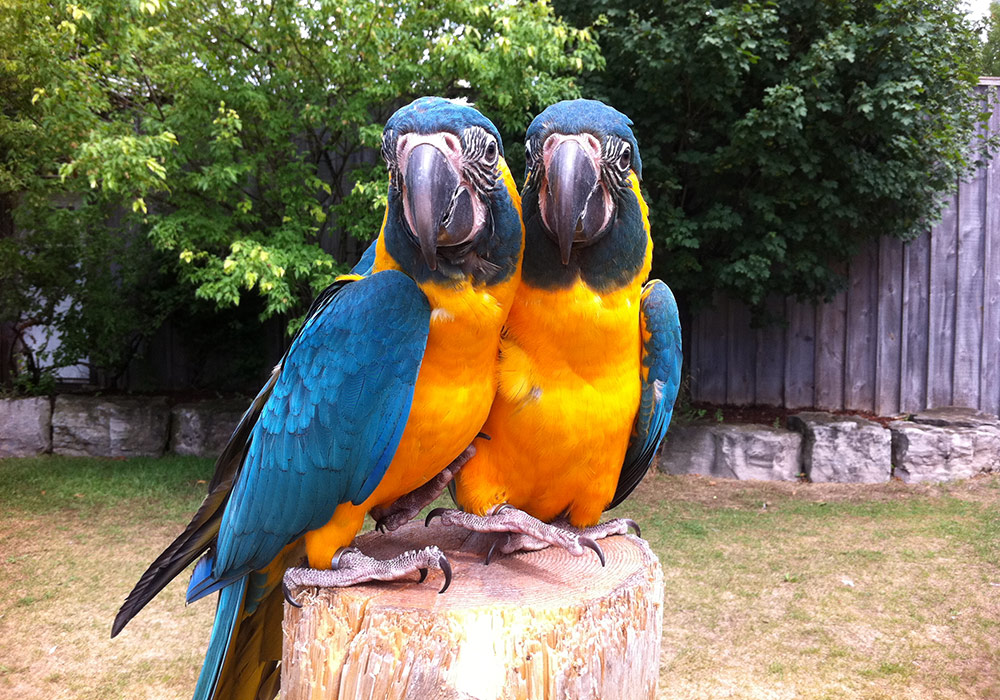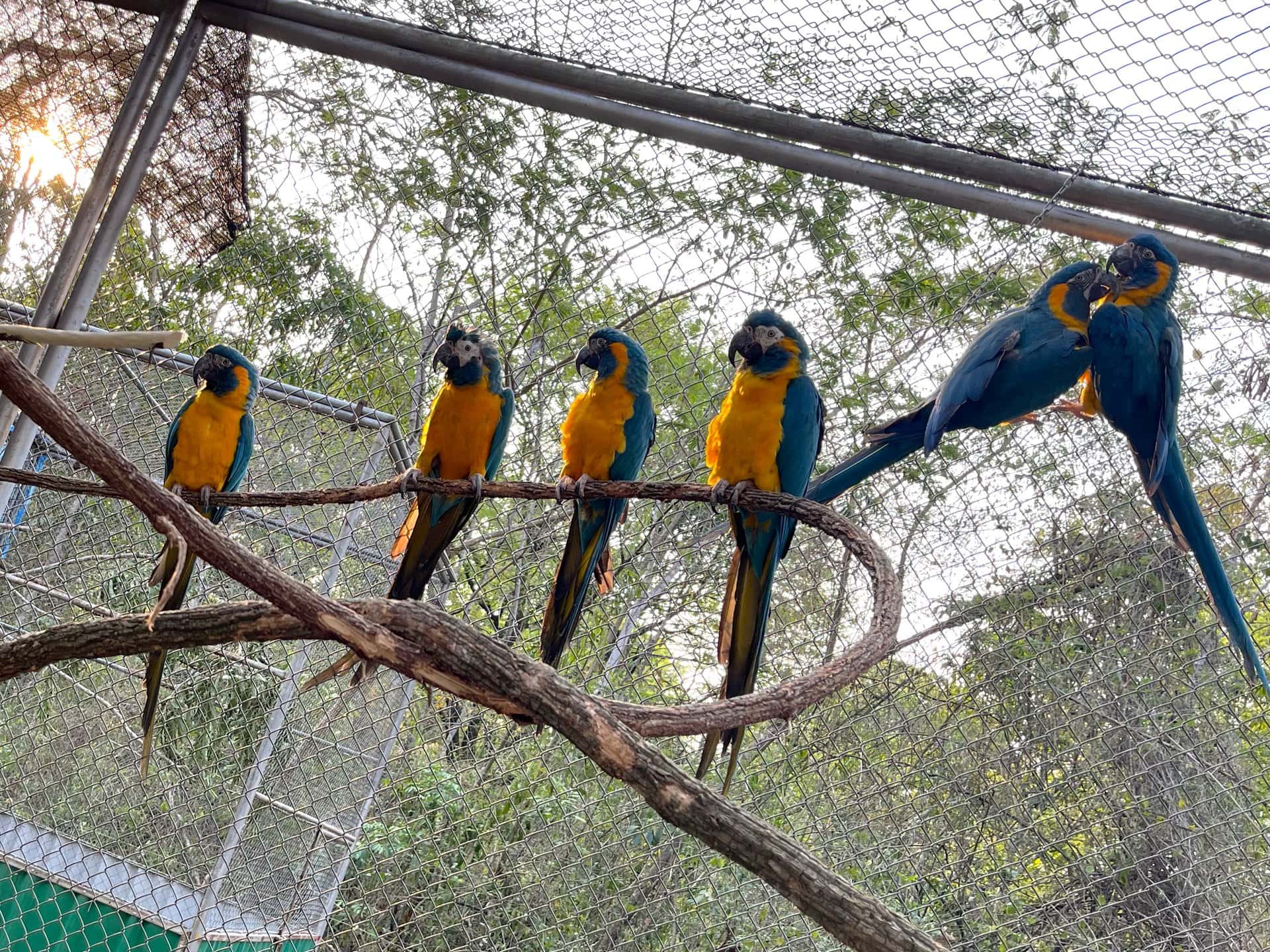Blue Throated Macaws
Overview
The Blue-throated Macaw is a critically endangered parrot species found only in the seasonally flooded savannahs in northern Bolivia. In fact, scientists were unable to find this species anywhere in the wild in the late 1980s. Upon closer investigation a small population was rediscovered in 1992 and currently there are only a couple of hundred individuals reported to exist in the wild. Threats such as trapping for the pet trade (although now illegal), deforestation, extreme weather patterns, botfly infestations and nest predation has the Blue-throated Macaws fighting the race against extinction.
To date, the conservation efforts for Blue-throated Macaw has focused on fieldwork to better understand the species’ ecology and to develop a long-term plan to help them make a comeback. However, it is believed that, without increasing the wild numbers with birds bred under human care, the population may not increase to the levels needed to sustain the species in the wild.
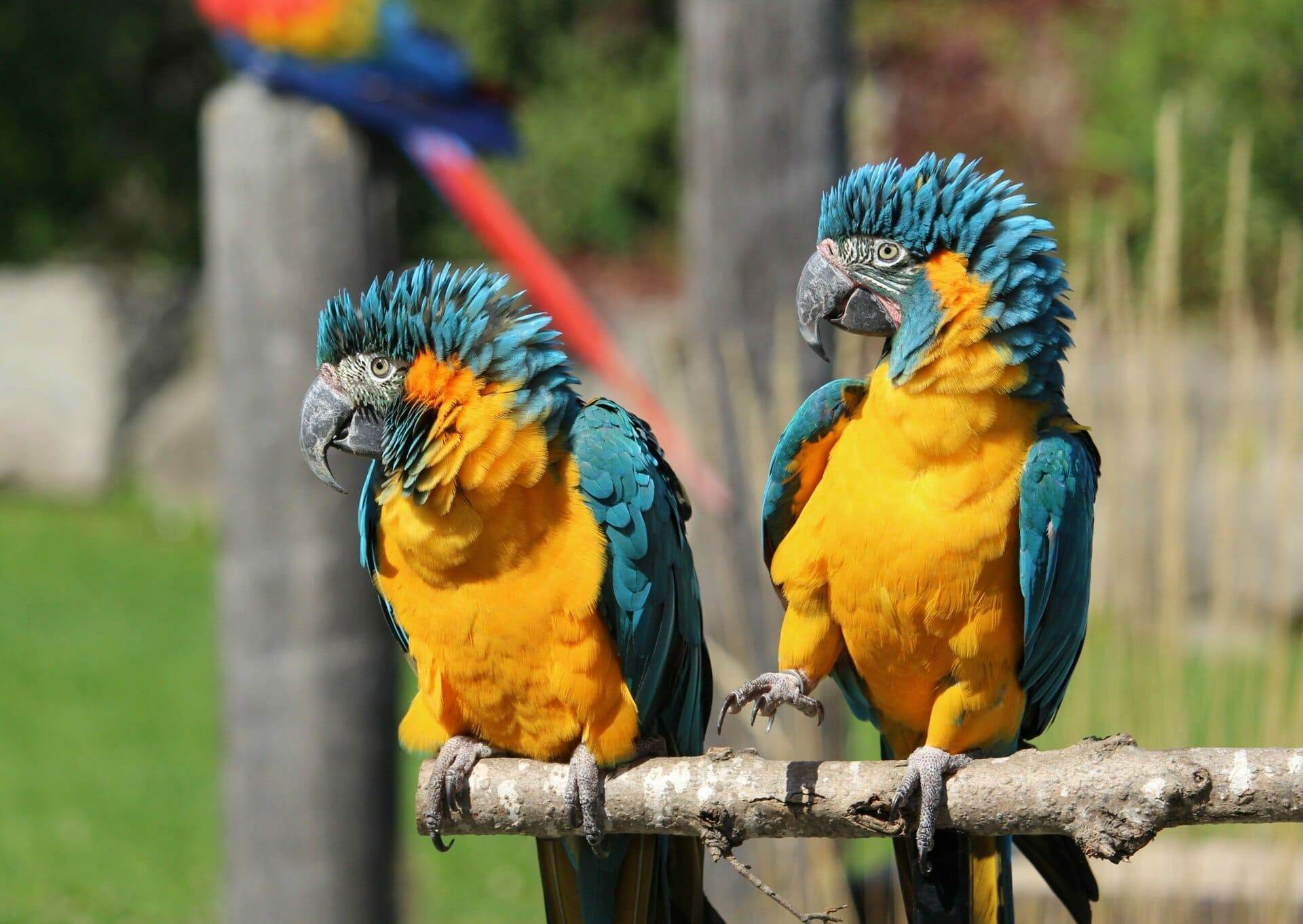
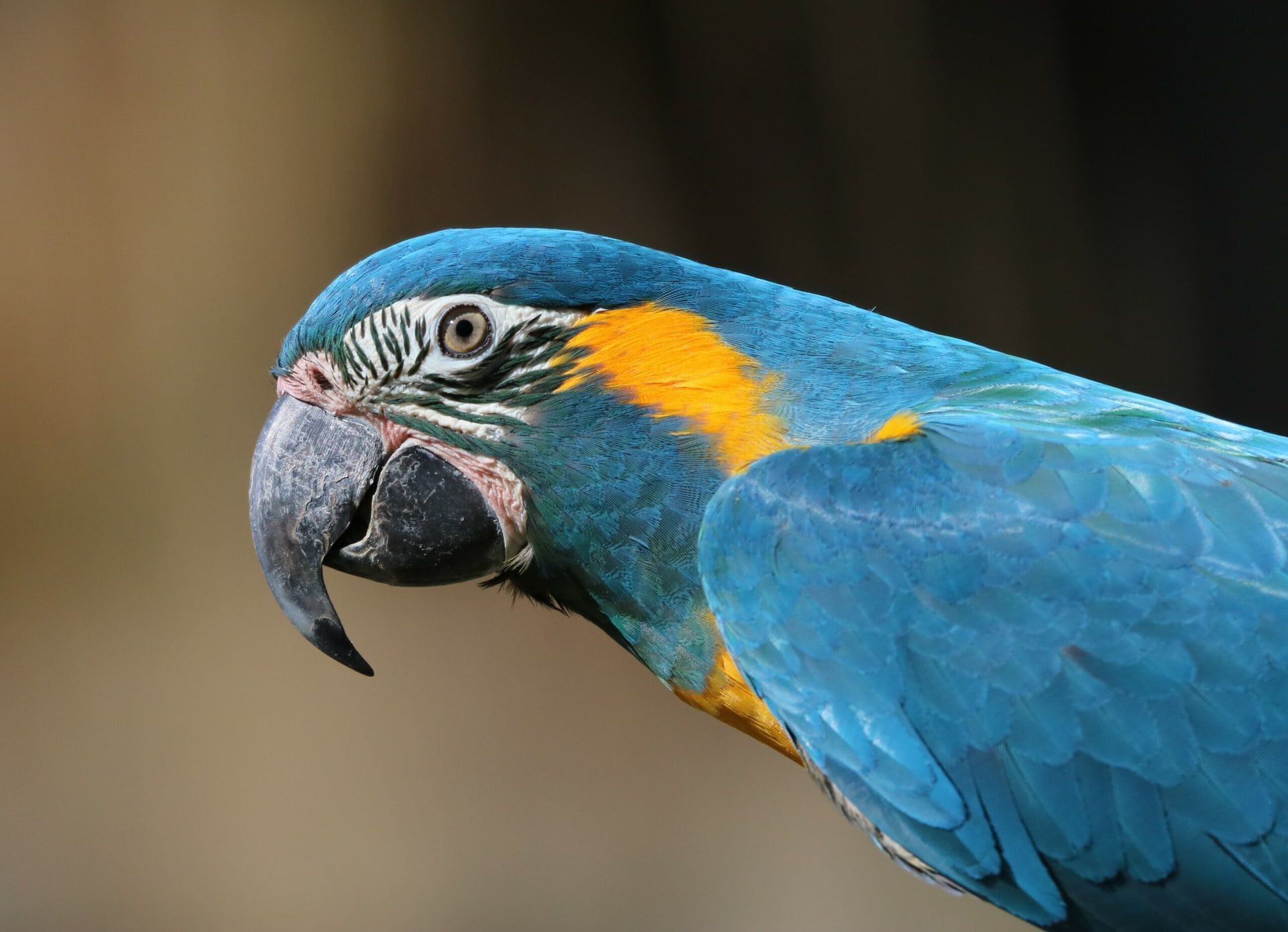
OUR CONSERVATION PROGRAMME
In 2014, African Lion Safari became a conservation partner with World Parrot Trust in efforts to save this iconic species. Staff are developing methods to breed Blue-throated Macaw in our care, with the goal of re-introducing the young into their natural habitat. While still in the early stages, African Lion Safari has made advances in transport and health screening methods, created a protocol to adjust birds to new environments, and setting up breeding pairs.
Our Future Goals
We will continue our efforts in developing egg incubation protocols, and contribute to the genetic research that will be used to guide management and help ensure the future of Blue-throated Macaw.
